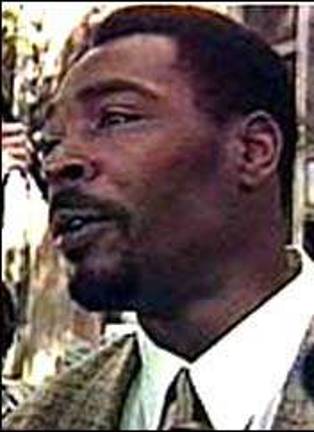"Can't We All Just Get Along?" Rodney King Found Dead, But Contentious Life Unforgotten

by Nick Gallinelli It's been over two decades since 1991, and we like to think we've come a long way since then, but when Rodney King dead by his fiancée in Rialto, Calif., on Sunday, it inevitably brought back ugly memories, and an ugly video, back into the public light. There was initially no sign of foul play when King was found, supposedly drowned, in his swimming pool, but his life was just the opposite. King's tumultuous and confrontational story hit the public's eye when he was brutally beaten by LAPD officers on March 3, 1991, after King was pulled over and, according to police, refused to comply with police and resisted arrest. [Caught on tape](http://www.youtube.com/watch?v=0w-SP7iuM6k) (slightly uneasing) by amateur cameraman George Holliday, the LAPD, with a sergeant present, subdued King by beating him up to 56 times, while video shows that after only a few blows King was incapacitated. The infamous video has been a long-time focal point in police brutality discussions and racial inequality, and King lying on the floor is a picture not easily forgotten. According to CNN, eleven days later, the sergeant present at the beating and the three officers who purportedly hit King, but not the officers who watched, were indicted and taken to court in Simi Valley, a suburb of Los Angeles, to avoid publicity. When they were acquitted by a mostly-white jury, riots broke out in LA, resulting in further beatings and a strict dawn-to-dusk curfew. King was eventually granted $3.8 million by the city of Los Angeles, the Wall Street Journal says. "Rodney King was a symbol of civil rights and he represented the anti-police brutality and anti-racial profiling movement of our time. It was his beating that made America focus on the presence of profiling and police misconduct," Reverend Al Sharpton said in a [statement](http://nationalactionnetwork.net/press/statement-from-rev-al-sharpton-regarding-the-death-of-rodney-king/), on National Action Network's website, regarding King's death. Sharpton is the president of National Action Network, which was founded in 1991. "Through all that he had gone through with his beating and his personal demons he was never one to not call for reconciliation and for people to overcome and forgive. History will record that it was Rodney King's beating and his actions that madeAmericadeal with the excessive misconduct of law enforcement." After the incident, King spoke the famous words, "People, I just want to say, can we all get along?" He since said he had forgiven the officers involved in the case, and released the memoir "[The Riot Within: My Journey from Rebellion to Redemption](http://www.amazon.com/s/ref=nb_sb_noss_1/180-8123182-6371350?url=search-alias=aps&field-keywords=the+riot+within)", earlier this year. Acknowledging King's recurrent substance abuse --he had multiple run-ins with the law and was once arrested for driving while under the influence of PCP-- King's body will be autopsied, CNN says.